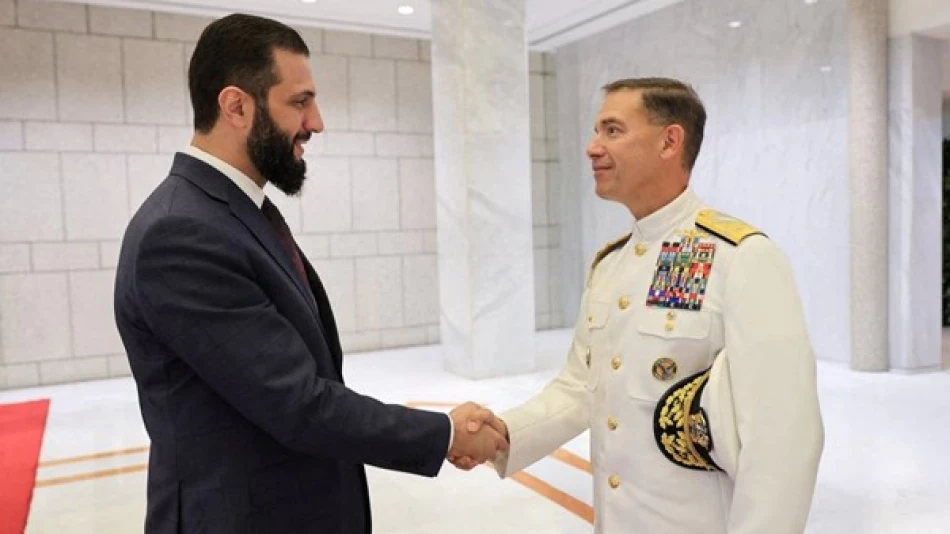
Syrian President Explores Cooperation Prospects with US Military Commander in the Region
Syria's New Leadership Pivots Toward Washington in High-Stakes Military Partnership
Syrian President Ahmed al-Sharaa met with the new commander of U.S. Central Command, Admiral Brad Cooper, in Damascus on Friday, marking a significant diplomatic shift as Syria's emerging government seeks closer ties with Washington. The meeting signals a potential realignment in Middle Eastern geopolitics, with both sides emphasizing shared counterterrorism goals and regional stability.
Strategic Partnership Takes Shape
The Damascus meeting, which also included U.S. Special Envoy to Syria Tom Barak, focused on expanding cooperation across political and military spheres. According to the Syrian presidency, discussions centered on "prospects for cooperation in political and military fields, serving mutual interests and consolidating security and stability in Syria and the region."
This diplomatic engagement represents a marked departure from the isolation that characterized Syria's international relations during much of the past decade's conflict. The timing suggests Syria's new leadership is actively courting Western partnerships as it seeks legitimacy and reconstruction support.
ISIS Remains Central to U.S.-Syria Calculus
CENTCOM officials thanked President al-Sharaa for his support in combating ISIS within Syrian territory, highlighting counterterrorism as the primary bridge between the two nations. The U.S. military command emphasized that "eliminating the ISIS threat in Syria will reduce the risk of an attack by the organization on American soil."
This counterterrorism focus provides both sides with practical common ground. For Washington, partnering with Syria's government offers more sustainable anti-ISIS operations than relying solely on periodic airstrikes. For Damascus, cooperation with CENTCOM provides international legitimacy and potential security guarantees.
Trump Administration's Regional Vision
The meeting aligns with the Trump administration's broader Middle East strategy, which CENTCOM described as achieving "a prosperous Middle East and a stable Syria at peace with itself and its neighbors." This vision suggests Washington may be willing to normalize relations with Syria's new government if it demonstrates genuine commitment to regional stability.
The approach mirrors successful U.S. partnerships with former adversaries when shared security interests emerged. Similar to how Washington gradually engaged with various Gulf states during regional conflicts, Syria could become another pragmatic partnership despite past tensions.
Regional Implications and Market Considerations
A warming U.S.-Syria relationship could reshape regional dynamics significantly. For investors, improved Syrian stability could unlock reconstruction opportunities in a country whose strategic location connects Europe, Asia, and Africa. Energy markets may also benefit if Syrian territory becomes available for pipeline projects linking regional gas supplies to European markets.
However, this diplomatic opening faces substantial obstacles. Congressional sanctions, regional rival concerns, and human rights questions will likely complicate any rapid normalization. The success of this partnership will depend heavily on Syria's ability to demonstrate genuine commitment to combating terrorism while maintaining domestic stability.
The Damascus meeting represents more than routine diplomatic contact—it signals a potential strategic realignment that could influence Middle Eastern security architecture for years to come.
Most Viewed News

 Layla Al Mansoori
Layla Al Mansoori






